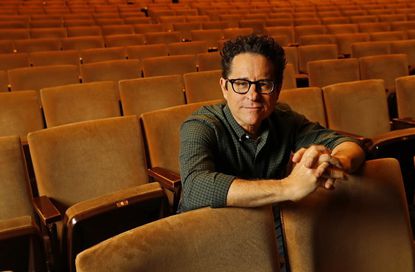
A theatre producer is an individual who raises funds and manages financial backing for a theatrical production. This person also hires and oversees the creative staff and oversees all aspects of mounting a theatre production. Their role is not to direct the show or direct the acting. But rather, they are responsible for all aspects of the mounting process. The producer is responsible for all aspects of a theatre production, including hiring actors, designers, and other creative personnel.

A theatre producer is in charge of all aspects of a production, from hiring a house manager to hiring an electrician and a carpenter. The job of a theatre producer can be a challenging one, and the tasks are constantly changing. However, a producer should have a good creative portfolio and be able to manage a team of talented people. A theatre producer’s role includes all aspects of a theater production, from finding a venue to casting the actors.
The job of a theatre producer varies according to the size of the production. In small productions, the producer works independently, and they usually work on a per-show contract. They hire the director and key artists, and also manage the budget. A theatre with a large budget will have several producers, so the producer’s role is to oversee the entire production. A theater with a large number of employees will likely have several producers working for them.
A theatre producer typically has postsecondary education and experience in theater management. Typically, a theater producer has previous experience in the production of a show, as well as theater management. A good producer should have experience in fundraising and managing a theatre, as well as excellent interpersonal skills. If you’re interested in a career in the theater industry, a career in this field is perfect for you. And remember, a theatre producer salary is lower than the average wage for all other types of productions.
A theatre producer is responsible for choosing a play for a production. This person oversees all aspects of the production, from selecting the right location to hiring the creative team. The producer also needs to decide how many performances to stage. Sometimes the producer is the owner of the theater. Some theater owners are producers, and their roles are similar. If you’re planning a theatrical production, you may be involved in every aspect of it.
A producer is often responsible for hiring the actors and other creatives
The producer also hires the designers and supports the artistic team. A theatre producer is heavily involved in marketing, publicity, and recruitment of crew and stage management. A theatre producer has a wide range of skills. Most producers will also be responsible for casting. And they’ll often be responsible for the production’s artistic vision. They’ll also manage the actors and creative team, and oversee the rehearsals.
Often, a theatre producer will be responsible for a production. They’ll arrange rehearsal spaces and distribute call sheets. They may also be responsible for hiring people. A good example is a theatre producer who has experience in managing the production of musicals. An independent theatre producer will be the boss. The job of a theatre producer is often varied, and there are many ways to succeed as a theater producer. The production of a play will depend on the talent of the person in charge.
A producer can be either an independent or an indie. As a theatre producer, you’ll take on the financial risk of producing a show. The best producers have a lot of experience and can find the necessary expertise. They’ll know how to deal with directors and actors. They’ll also be responsible for fundraising. If you’re interested in becoming a producer, it’s time to learn more about the profession.
There are many different types of producers. A few of them are independent producers and associate producers. If you’re an independent producer, your role will vary greatly. You’ll be responsible for ensuring that royalties are paid, setting the production schedule, and choosing the cast. A theatre producer is important because they can make or break a show’s success. You’ll need to have a lot of experience to be successful in this position.